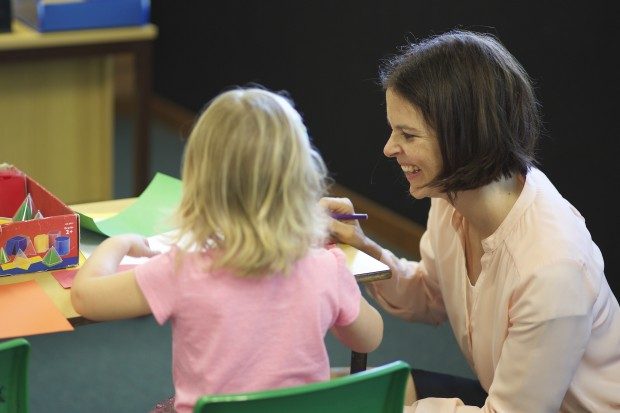The other day I noticed the fun I experienced marking students’ work when I chose to remain open, relaxed and connected to what they were learning. I opened myself up to see beyond what the curriculum requirements were, and was instead assessing the level of connection I made with each student.
For as long as I can remember I had always thought marking needed to be done quickly and was a burden on my teaching time. The piles were never-ending and the pace with which marking was done was fast, with little regard for the student and their work. Darting around the classroom in order to mark the work before I began another set of teaching instructions felt like the norm.
The levels of exhaustion I experienced made me feel racy and there was no connection with the students or with their work. I gave little consideration to how I could support them to go to the next stage of learning, or to consolidate their current levels of learning.
The teaching phase was fun and by far the most enjoyable stage. I would introduce the topic and get the ball rolling with practical examples and engage the children in each step. The children would share and laugh whilst learning. Everyone was focused and the learning was meaningful, relevant and there was a sense of ease in which this was done. Every lesson was simple and the children were part of the teaching rather than doing all the learning. This unfortunately was lost once I moved to the marking mode. I could feel my relaxed and open body turn into a hard machine, ready to race through the assembly line of paper marking.
When I made the choice to stop and connect more to the steady pace in which I was teaching, I noticed there was no need to go into the overwhelm of what the idea of assessing and marking brings to teaching.
The playful interactions that took place with the simple daily over the shoulder marking made me realise how much the students enjoyed the ‘one to one’ connection they were receiving. Every interaction with a child was simple and varied, according to what they needed:
A supportive hand on the shoulder…
A playful gentle tap on the head …
A tender touch of the hand…
A knowing glance of ‘you’ve got it’…
A cheeky wink to say… yep! …. You’re on the right track.
With this way of marking their work came a deeper level of understanding about how the children crave this connection and wait patiently for their turn. I could feel them nuzzle into their chairs, brushing gently past my arms as I began to mark. Their eyes were open and engaged in what I had to share. They talked more and their voices had a giggling tone that invited more connection. They were not disappointed or hard on themselves if they didn’t fully understand the teaching concept, as they knew the support was always there.
Marking and assessing can be a task that overwhelms and overloads but with that comes a fall in the quality of connection that the children are clearly receptive and open to.
Assessing how to connect to a student is what true marking is about. When we assess what is needed at each moment the marking becomes simple, fun and straightforward.
By Anonymous, Teacher, Mentoring Teacher and Program Facilitator, Australia
Further Reading:
The power of relationship in the classroom
Circle time: an opportunity for connection and expression
Education, Schools & Teaching our Kids: ‘Quality of Presence’ in the Classroom
Teachers are Gold





